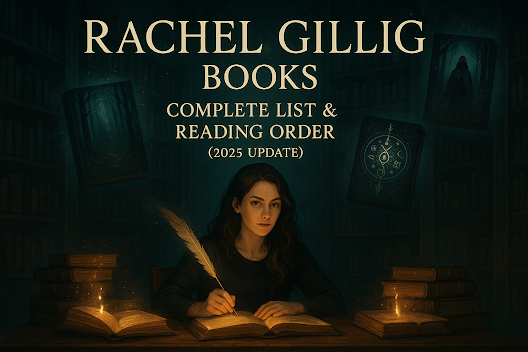The Secret History by Donna Tartt Review – Is It Worth Reading?
Introduction
Few novels have captured the allure of academia, mystery, and moral decay quite like The Secret History by Donna Tartt. First published in 1992, this debut novel became an instant classic and is often credited with inspiring the “Dark Academia” literary movement.
But more than 30 years later, is The Secret History still worth reading? In this review, we’ll explore the book’s themes, characters, and lasting influence to find out why it continues to fascinate readers around the world.

About the Book
The Secret History is a literary fiction and psychological thriller set in a small liberal arts college in Vermont. It follows a group of elite classics students studying under the charismatic professor Julian Morrow. Beneath their intellectual charm lies a chilling secret that leads to obsession, betrayal, and murder.
Written in first-person perspective by Richard Papen, a transfer student who becomes entangled with this mysterious group, the novel blurs the lines between morality and intellect. Tartt’s detailed prose and slow-burning tension make it both a character study and a philosophical exploration of human nature.
Plot Overview (Spoiler-Free)
Richard, the narrator, arrives at Hampden College seeking beauty and meaning in life. He becomes fascinated by an exclusive group of students who study ancient Greek under Julian Morrow. Their lives appear perfect—filled with intellect, elegance, and mystery—but Richard soon discovers a darker truth beneath the surface.
A crime binds the group together, leading to paranoia, guilt, and emotional unraveling. Rather than focusing on who committed the act, Tartt explores why—and how people justify their moral transgressions.
Themes and Symbolism
The Secret History dives deep into several thought-provoking themes:
-
Intellectual Obsession: The students’ pursuit of beauty and knowledge blurs into moral corruption.
-
Class and Privilege: The book exposes the divide between wealth and insecurity through Richard’s outsider perspective.
-
Guilt and Consequence: Tartt portrays guilt as both punishment and motivation.
-
The Appeal of Dark Academia: With its ivy-covered walls, philosophical discussions, and tragic beauty, the novel defines the aesthetic that many readers still crave today.
Writing Style & Tone
Donna Tartt’s prose is rich, detailed, and immersive. Her writing demands patience but rewards readers with depth and atmosphere. The tone is melancholic yet elegant, perfectly capturing the weight of guilt and the beauty of knowledge.
The pacing is slow, deliberate, and reflective—more psychological than plot-driven. Every page immerses readers in the claustrophobic world of Hampden College, where intellect and morality collide.
Character Analysis
Tartt’s characters are flawed, complex, and disturbingly human:
-
Richard Papen: The narrator—an outsider longing to belong, whose moral boundaries slowly blur.
-
Henry Winter: The intellectual leader, brilliant yet cold and manipulative.
-
Bunny Corcoran: The moral disruptor whose charm hides deep insecurity.
-
Camilla and Charles: Twins whose bond reflects beauty and brokenness.
Each character represents a different aspect of obsession, privilege, and decay, making them unforgettable in literary fiction.
Strengths of the Novel
-
Deeply philosophical and emotionally layered storytelling
-
Rich, atmospheric setting that defines the Dark Academia genre
-
Complex characters who feel hauntingly real
-
Themes that remain relevant decades after publication
Criticisms or Drawbacks
While the novel is widely praised, it’s not for everyone. Some readers find the pacing slow, the classical references dense, and the ending morally ambiguous. However, for those who appreciate layered storytelling and introspection, these aspects only enhance the experience.
Who Should Read The Secret History
This book is perfect for readers who love:
-
Dark Academia and campus novels
-
Psychological fiction and moral dilemmas
-
Lyrical prose and character-driven storytelling
If you enjoyed works like If We Were Villains by M. L. Rio or Dead Poets Society, The Secret History will likely become a new favorite.
Final Verdict – Is It Worth Reading?
Absolutely. The Secret History is a timeless exploration of intellect, guilt, and human nature. It’s not just a mystery—it’s a meditation on the cost of beauty and the danger of obsession.
Even after three decades, Donna Tartt’s masterpiece continues to inspire discussions, essays, and an entire subculture of readers drawn to its dark, scholarly charm.
⭐️ Rating: 4.8/5 – A haunting, thought-provoking classic that every serious reader should experience.
.png)


Comments
Post a Comment